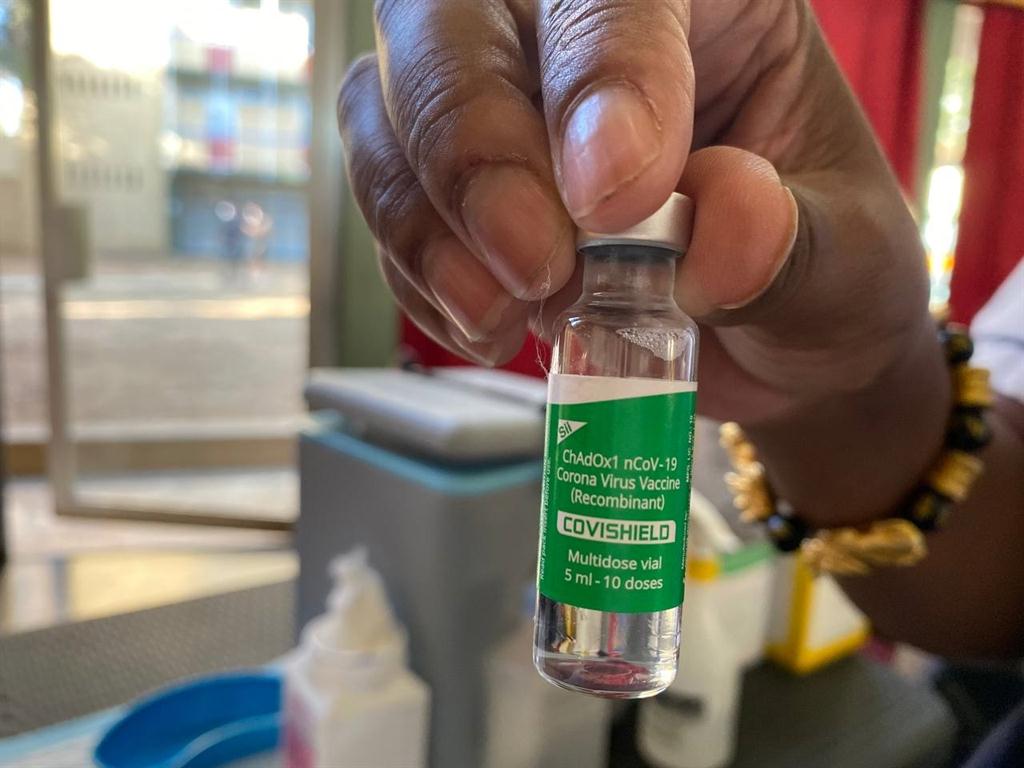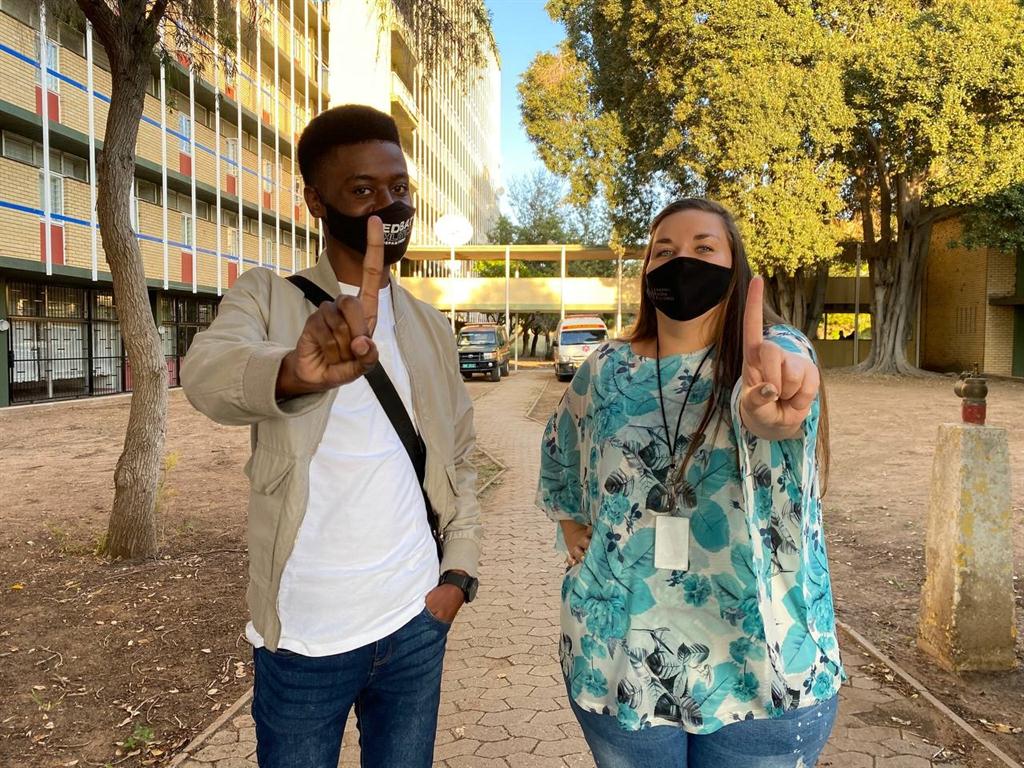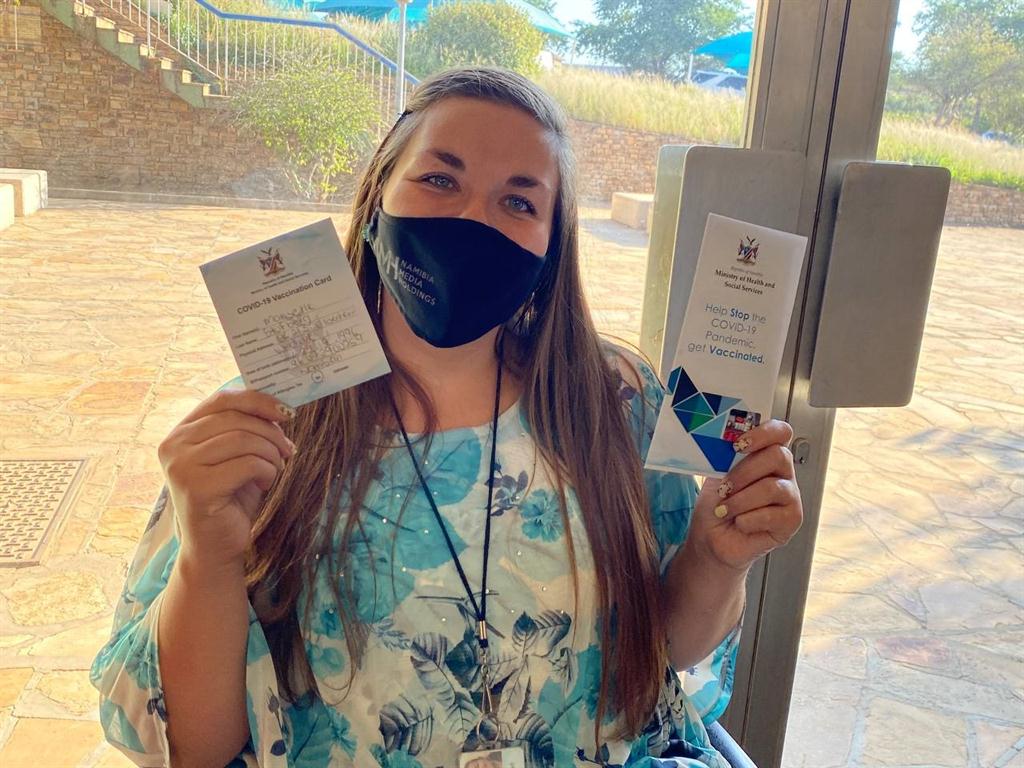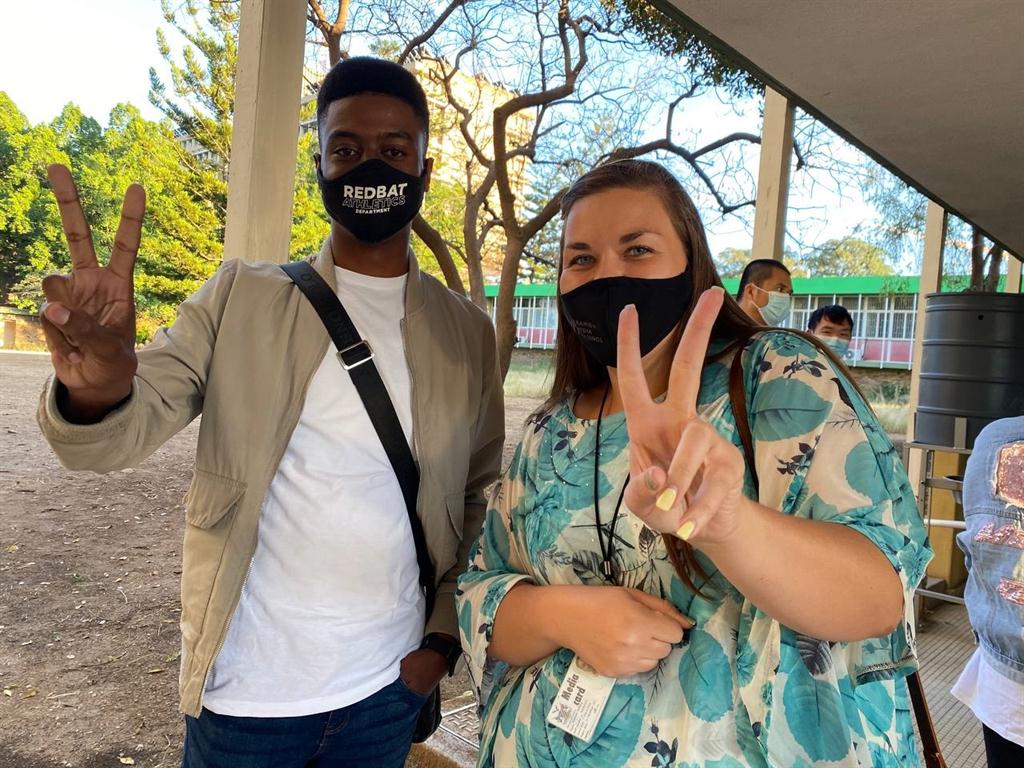The Covid-19 vaccine
It is not a microchip, nor will it change your DNA; it is the best available form of protection against the virus.
Rivaldo Kavanga
The introduction of Covid-19 vaccines to Namibia was met with different perceptions by the Namibian population. Some see it as the solution to the Covid-19 pandemic and are eagerly lining up to get vaccinated, while others are shying away from the jab without understanding what vaccines actually are.
What is a vaccine?
A vaccine is a harmless or weakened form of virus or bacteria that stimulates your immune system to produce antibodies. The antibodies protect you against the actual virus or bacteria. Vaccines prepare the body’s natural defence against pathogens. Vaccination is vital; it is a safe and effective way to protect you against diseases and save lives. There are vaccines that can protect you from about 20 deadly diseases, such as polio, diphtheria, tetanus, pertussis, influenza and measles.
Are vaccines safe?
Yes, vaccines are safe and they have been put through various tests and trials to ensure they are safe. Mariselle Stofberg, a Covid-19 vaccine recipient, says she feels great and empowered after having her shot and she wants to encourage other young people to take the vaccine too.
Are vaccines a cure for Covid-19?
The Covid-19 vaccine is not a cure but will protect you from Covid-19 infection. There is currently no cure to the Covid-19 virus but there are multiple vaccines in the world to protect us against the virus.
Why everyone needs to go for a Covid-19 vaccine
· Everyone needs to get vaccinated in order for us to achieve herd immunity. Herd immunity is a form of protection against an infectious disease that can be accomplished when a majority of a certain population gets vaccinated, thereby reducing the likelihood of infection for individuals who lack immunity. As of 2020 Namibia has a population that is estimated at 2 540 905 people and with a median age is 21.8 years, according to UN data. In order to achieve herd immunity, we would need to vaccinate at least 70% of the population. Namibia would therefore need to vaccinate at least 1 778 634 people.
· The coronavirus vaccine is free and safe.
· By getting vaccinated you are increasing the likelihood of ending the pandemic, one step at a time.
Is it mandatory to take the vaccine?
No. The vaccine is not compulsory but it is advised that everyone takes the vaccine in order to achieve herd immunity.
Vaccines in Namibia
According to the World Health Organisation website there is currently 19 Covid -19 vaccine manufacturers. Namibia has received only two vaccines to date: the AstraZeneca vaccine and the Sinopharm vaccine.
Sinopharm
· This was the first vaccine to reach Namibia.
· Namibia received a batch of 100 000 doses of the Sinopharm vaccine as a donation from China on 16 March 2021.
· Namibia’s vaccination programme officially got under way on 19 March 2021.
· The vaccine is an inactivated or weakened virus vaccine.
· The Sinopharm vaccine is administered in two separate injections of 0.5 mL each into the muscle of the arm. For the vaccine to work best, you need to get two doses: a first dose and then a second dose 28 days later.
·
AstraZeneca
· Namibia received 24 000 doses of AstraZeneca vaccine through the Covax facility on 16 April and started the second phase of vaccination on 19 April.
· The vaccine is only given to people who are 18 years and older.
· The vaccine is given in two separate injections of 0.5 mL each into the muscle of the arm. For the vaccine to work best, you need to get two doses: a first dose and then a second dose 90 days later.
How much does it cost and where can I get vaccinated?
The Covid-19 vaccine is available at the following hospitals in Windhoek and it is FREE:
· Katutura State Hospital
· Windhoek Central Hospital
· Rhino Park Private Hospital
· Lady Pohamba Private Hospital
Who can take the vaccine?
Covid-19 vaccines will be given first to people who are at high risk of getting Covid-19 and passing it on, or becoming seriously ill when infected. The following people are given preference for the Covid -19 vaccine:
· Healthcare workers
· Older adults
· People with comorbidities like asthma, diabetes etc.
· People with health needs that are at higher risk of severe disease or death.
· Disadvantaged population groups at a higher risk of getting Covid -19 and passing it on because they are unable to maintain physical distancing.
· People who are employed in frontline service sectors and at a high risk of passing it on.
Who cannot get the Covid-19 vaccine?
· Young people below the age of 18 years. Trials have not yet been done with people in this age group.
· Any person with known medical conditions such as allergic reactions after immunisation.
· Any person infected with Covid-19 will only be vaccinated 90 days after known infection.
· Any person who is ill with infection will only be vaccinated after recovery.
If I tested positive for Covid-19 in the past, do I still need the vaccine?
According to Sister Emilie Jacobs, a senior registered nurse at the Katutura State Hospital, you still need to get the Covid-19 vaccine even if you have tested positive for the virus before. However, if you are currently infected with Covid-19 will only be vaccinated 90 days after known infection.
Steps to taking the vaccine
Step 1: Make your way to a health facility that administers the Covid vaccine.
Step 2: Go to the Covid vaccine site and queue up.
Step 3: Get a general health check which includes your blood pressure, and fill in a form that seeks details such as name, surname, ID number, home address and some previous health-related questions.
Step 4: After filing in the form wait in line to go to the Covid-19 vaccine consent table. At the vaccine consent line, a nurse will give you information on the types of vaccines, possible side-effects and every aspect surrounding the vaccine.
Step 5: Join another queue that leads to the Covid vaccination point. At the Covid-19 vaccination point a health professional will ask what vaccine you want to be injected with based on the information you received at the Covid-19 vaccine consent table.
Step 6: Once you have chosen the vaccine you want, the nurse will inject you with it.
Step 7: You will then be led to another table where the nurse will fill in a detailed form on the vaccine that was administered. He/she will also fill in your Covid-19 vaccination card.
Step 8: You will then follow the queue and reach a table where the nurse will give you information on what to do if you experience side effects and what numbers to call.
Step 9: You will then hand in your form at the last nurse and keep your vaccine card. Your vaccine card will then be stamped and will become official. The nurses keep your form for record keeping. You will then have to wait for at least 15 minutes after the vaccine has been administered for a nurse to observe possible side effects.
Step 10: Go home and continue physical distancing and wearing your mask.
Infographic
Namibia can currently only vaccinate 124 000 people, which is about 4.9% of its total population.
Namibia has only two vaccines: The AstraZeneca vaccine and the Sinopharm vaccine.
The coronavirus vaccine is free and safe.
As of 2020 Namibia has a population that is estimated at 2 540 905 people and with a median age is 21.8 years, according to UN data. In order to achieve herd immunity, we would need to vaccinate at least 70% of the population. Namibia would therefore need to vaccinate at least 1 778 634 people.
The introduction of Covid-19 vaccines to Namibia was met with different perceptions by the Namibian population. Some see it as the solution to the Covid-19 pandemic and are eagerly lining up to get vaccinated, while others are shying away from the jab without understanding what vaccines actually are.
What is a vaccine?
A vaccine is a harmless or weakened form of virus or bacteria that stimulates your immune system to produce antibodies. The antibodies protect you against the actual virus or bacteria. Vaccines prepare the body’s natural defence against pathogens. Vaccination is vital; it is a safe and effective way to protect you against diseases and save lives. There are vaccines that can protect you from about 20 deadly diseases, such as polio, diphtheria, tetanus, pertussis, influenza and measles.
Are vaccines safe?
Yes, vaccines are safe and they have been put through various tests and trials to ensure they are safe. Mariselle Stofberg, a Covid-19 vaccine recipient, says she feels great and empowered after having her shot and she wants to encourage other young people to take the vaccine too.
Are vaccines a cure for Covid-19?
The Covid-19 vaccine is not a cure but will protect you from Covid-19 infection. There is currently no cure to the Covid-19 virus but there are multiple vaccines in the world to protect us against the virus.
Why everyone needs to go for a Covid-19 vaccine
· Everyone needs to get vaccinated in order for us to achieve herd immunity. Herd immunity is a form of protection against an infectious disease that can be accomplished when a majority of a certain population gets vaccinated, thereby reducing the likelihood of infection for individuals who lack immunity. As of 2020 Namibia has a population that is estimated at 2 540 905 people and with a median age is 21.8 years, according to UN data. In order to achieve herd immunity, we would need to vaccinate at least 70% of the population. Namibia would therefore need to vaccinate at least 1 778 634 people.
· The coronavirus vaccine is free and safe.
· By getting vaccinated you are increasing the likelihood of ending the pandemic, one step at a time.
Is it mandatory to take the vaccine?
No. The vaccine is not compulsory but it is advised that everyone takes the vaccine in order to achieve herd immunity.
Vaccines in Namibia
According to the World Health Organisation website there is currently 19 Covid -19 vaccine manufacturers. Namibia has received only two vaccines to date: the AstraZeneca vaccine and the Sinopharm vaccine.
Sinopharm
· This was the first vaccine to reach Namibia.
· Namibia received a batch of 100 000 doses of the Sinopharm vaccine as a donation from China on 16 March 2021.
· Namibia’s vaccination programme officially got under way on 19 March 2021.
· The vaccine is an inactivated or weakened virus vaccine.
· The Sinopharm vaccine is administered in two separate injections of 0.5 mL each into the muscle of the arm. For the vaccine to work best, you need to get two doses: a first dose and then a second dose 28 days later.
·
AstraZeneca
· Namibia received 24 000 doses of AstraZeneca vaccine through the Covax facility on 16 April and started the second phase of vaccination on 19 April.
· The vaccine is only given to people who are 18 years and older.
· The vaccine is given in two separate injections of 0.5 mL each into the muscle of the arm. For the vaccine to work best, you need to get two doses: a first dose and then a second dose 90 days later.
How much does it cost and where can I get vaccinated?
The Covid-19 vaccine is available at the following hospitals in Windhoek and it is FREE:
· Katutura State Hospital
· Windhoek Central Hospital
· Rhino Park Private Hospital
· Lady Pohamba Private Hospital
Who can take the vaccine?
Covid-19 vaccines will be given first to people who are at high risk of getting Covid-19 and passing it on, or becoming seriously ill when infected. The following people are given preference for the Covid -19 vaccine:
· Healthcare workers
· Older adults
· People with comorbidities like asthma, diabetes etc.
· People with health needs that are at higher risk of severe disease or death.
· Disadvantaged population groups at a higher risk of getting Covid -19 and passing it on because they are unable to maintain physical distancing.
· People who are employed in frontline service sectors and at a high risk of passing it on.
Who cannot get the Covid-19 vaccine?
· Young people below the age of 18 years. Trials have not yet been done with people in this age group.
· Any person with known medical conditions such as allergic reactions after immunisation.
· Any person infected with Covid-19 will only be vaccinated 90 days after known infection.
· Any person who is ill with infection will only be vaccinated after recovery.
If I tested positive for Covid-19 in the past, do I still need the vaccine?
According to Sister Emilie Jacobs, a senior registered nurse at the Katutura State Hospital, you still need to get the Covid-19 vaccine even if you have tested positive for the virus before. However, if you are currently infected with Covid-19 will only be vaccinated 90 days after known infection.
Steps to taking the vaccine
Step 1: Make your way to a health facility that administers the Covid vaccine.
Step 2: Go to the Covid vaccine site and queue up.
Step 3: Get a general health check which includes your blood pressure, and fill in a form that seeks details such as name, surname, ID number, home address and some previous health-related questions.
Step 4: After filing in the form wait in line to go to the Covid-19 vaccine consent table. At the vaccine consent line, a nurse will give you information on the types of vaccines, possible side-effects and every aspect surrounding the vaccine.
Step 5: Join another queue that leads to the Covid vaccination point. At the Covid-19 vaccination point a health professional will ask what vaccine you want to be injected with based on the information you received at the Covid-19 vaccine consent table.
Step 6: Once you have chosen the vaccine you want, the nurse will inject you with it.
Step 7: You will then be led to another table where the nurse will fill in a detailed form on the vaccine that was administered. He/she will also fill in your Covid-19 vaccination card.
Step 8: You will then follow the queue and reach a table where the nurse will give you information on what to do if you experience side effects and what numbers to call.
Step 9: You will then hand in your form at the last nurse and keep your vaccine card. Your vaccine card will then be stamped and will become official. The nurses keep your form for record keeping. You will then have to wait for at least 15 minutes after the vaccine has been administered for a nurse to observe possible side effects.
Step 10: Go home and continue physical distancing and wearing your mask.
Infographic
Namibia can currently only vaccinate 124 000 people, which is about 4.9% of its total population.
Namibia has only two vaccines: The AstraZeneca vaccine and the Sinopharm vaccine.
The coronavirus vaccine is free and safe.
As of 2020 Namibia has a population that is estimated at 2 540 905 people and with a median age is 21.8 years, according to UN data. In order to achieve herd immunity, we would need to vaccinate at least 70% of the population. Namibia would therefore need to vaccinate at least 1 778 634 people.












Kommentaar
Republikein
Geen kommentaar is op hierdie artikel gelaat nie